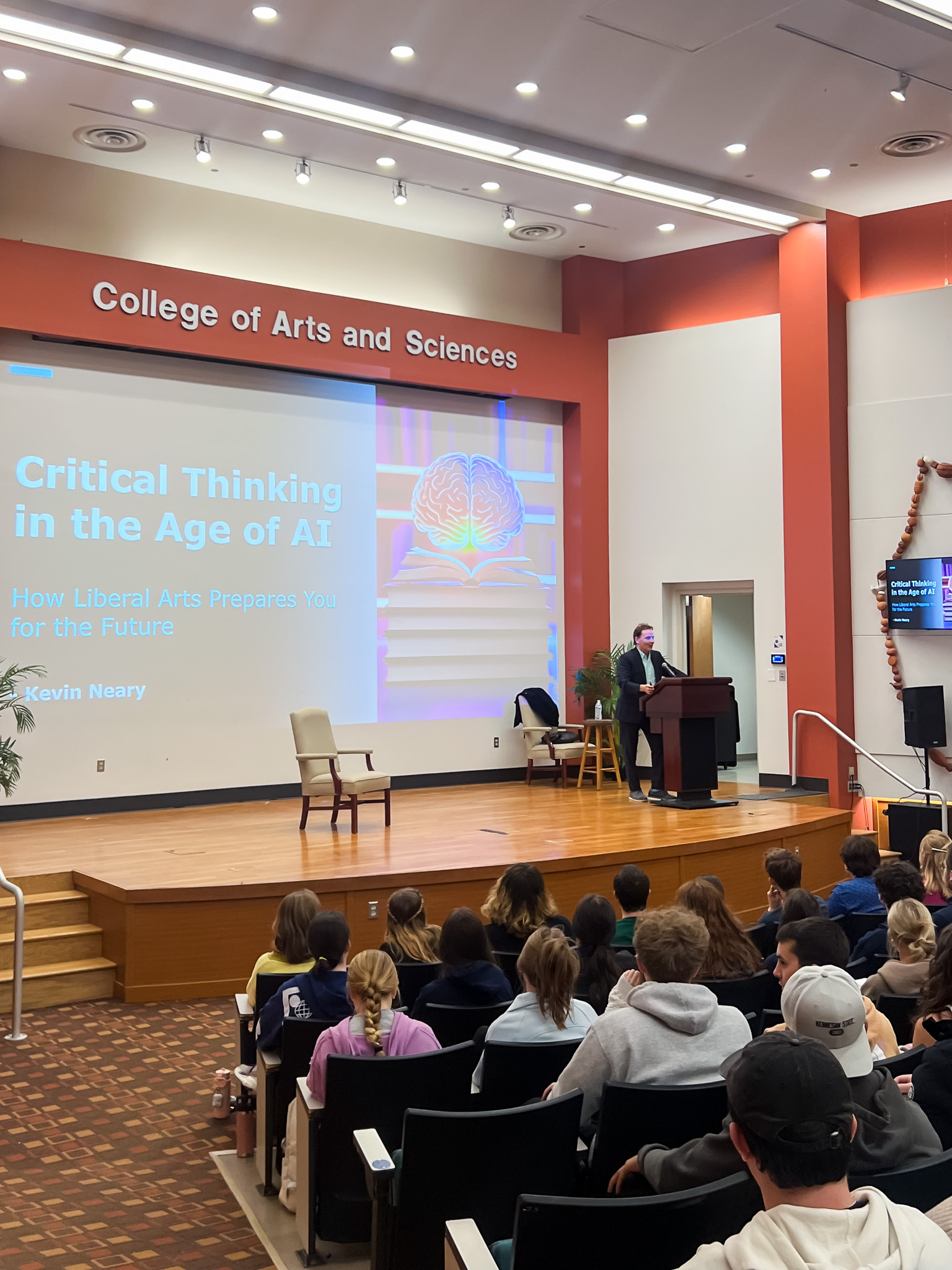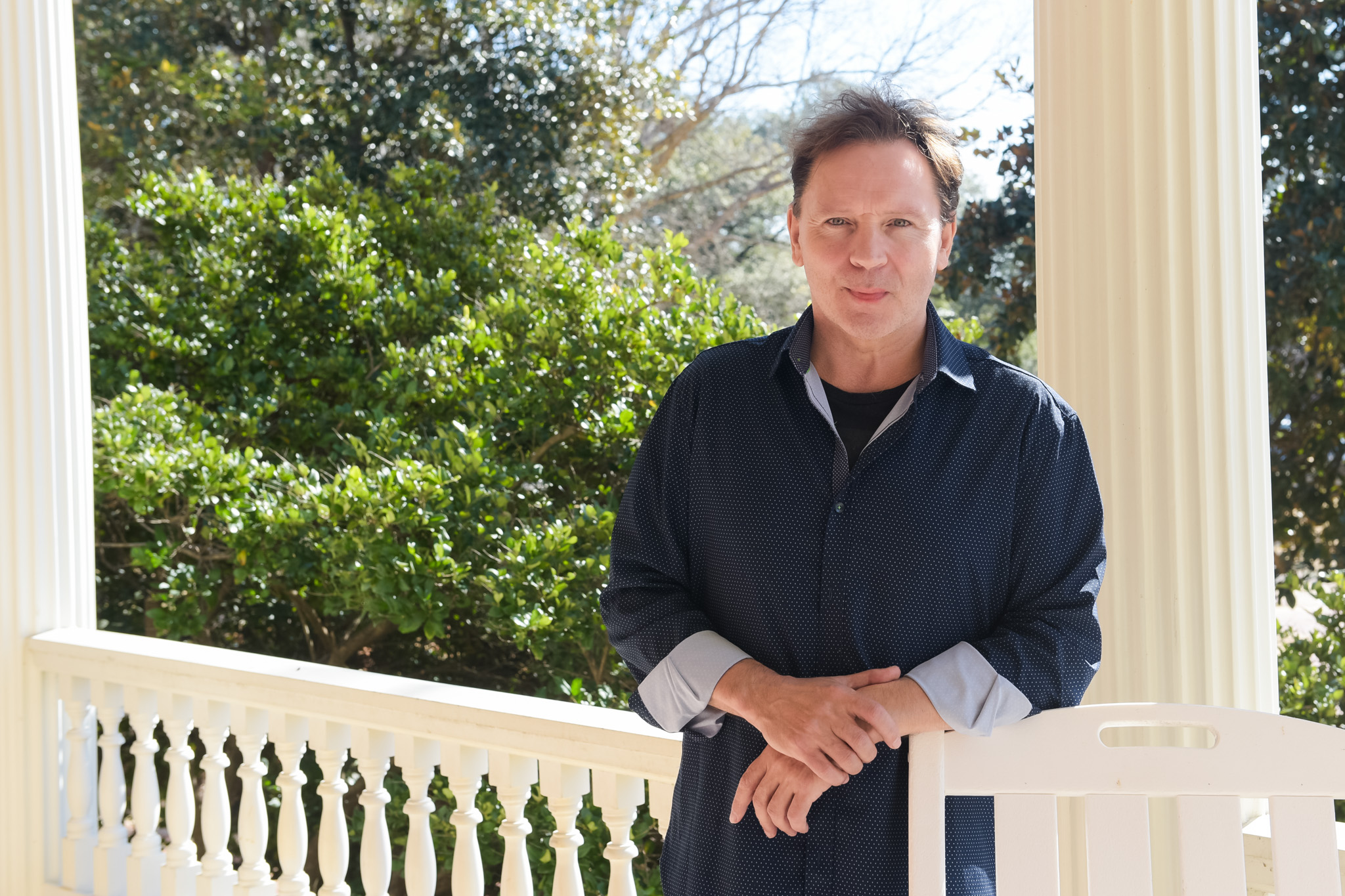Responsible AI co-founder and CEO shares how to be a ‘human in the loop’
by Kristen Simpson

G eorgia College & State University hosted Orcawise co-founder and CEO Kevin Neary last week as part of a new Business Executive-in-Residence program. Orcawise is an Ireland-based company that specializes in compliance and assists businesses in implementing ethical AI solutions.
Through a packed itinerary, Neary shared his best AI insights with students and the campus community, including how we can benefit from rapidly developing technology.
“I’m really excited by the way Georgia College is connecting to industry,” Neary said. “Liberal arts are very exciting for me, because I genuinely see that those are the subjects that are going to be so important in the age of AI.”
The Business Executive-in-Residence program, created by the J. Whitney Bunting College of Business & Technology, facilitates the sharing of real-world knowledge and experience to students by industry professionals.
Human oversight and critical thinking are musts
"The jobs coming down the line are getting more interesting and more exciting, and the only thing that’s going to be automated are those jobs that nobody wants to do anyway,” Neary said. “AI agents to oversee the automation, human oversight, is going to be so important.”
“To get the best AI, we need top-class philosophers, English majors, marketers, lawyers and artists,” he said. “Liberal arts, in my mind, equals critical thinking.”
Staying relevant is imperative
“Staying relevant is going to be ongoing education and a mindset shift—we all need an AI mindset,” Neary said. “We have our core education and what we're learning right now, but we need to keep learning and keep adapting and keep changing as we go forward—expect anything coming down the line.”
Responsibility and limitations are critical to ethics
“We will be collaborating with AI, and we will be the senior collaborators in that relationship,” Neary said. “We should encourage students to understand that AI is an extension of human ethics.”
“Ensure you’re working with employers that have guardrails in place within their AI systems,” Neary said. “The rate of change is so fast that we don't want to lose sight of guardrails, and we need to be constantly reinventing our guardrails so that we can keep up with the rate of change.”
His main message: trust in your ability as a critical thinker, maintain that ability and be prepared to be the change.
“I hope to come back again and continue the relationship here,” Neary said, “And I think the leaders in this university are doing a great job in preparing the students for the age of AI, and I'm really excited to support that.”
